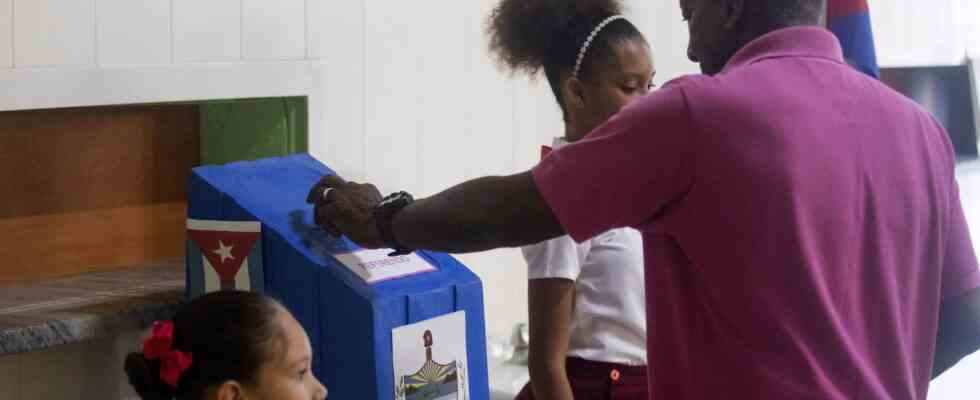As of: 09/26/2022 9:36 p.m
It was a rare moment of citizen participation: the people of Cuba voted for the new family law and marriage for all. But there is not as much democracy behind it as the government would like you to believe.
For the communist party and state leadership, this democratic experiment was a success, even if a third voted against. Cuba’s new family law opens marriage to same-sex couples, reforms adoption laws, legalizes surrogacy and artificial insemination, strengthens the rights of women, the elderly and carers, and increases protections against domestic violence. It also takes into account the fact that in many families four generations live under one roof, take care of each other and share childcare.
Cuba’s President and party leader Miguel Díaz-Canel personally campaigned for the reform of family law and evaluated the result as follows:
That was a victory for Cuba. A victory of love. It was also a victory for democratic participation in socialist construction. The passing of the family law is an act of justice, it is the settlement of a debt to several generations of Cubans whose family projects have been waiting for this law for years. Starting today, we will be a better, more complete, more democratic, and just nation.
Same-sex marriage a point of contention
It was not only evangelical communities and the Catholic Church that opposed the opening up of marriage to same-sex couples. Even today, gay marriage does not fit into the revolutionary worldview, especially for older communists. For this reason, three years ago, the topic was left out of the drafting of the new constitution.
The government had organized thousands of discussion events and neighborhood meetings in the past few months, through which countless proposals for change had been incorporated. State and party media had been drumming for a “yes” referendum for weeks.
“No” votes as a beating for the regime
Many are happy now, including Sam Olazábal, feminist and LGBT activist in Havana. For the young woman, the advances in matrimonial law are a real achievement. Sam is bothered by the fact that many critics of the regime in Cuba and abroad campaigned for a “No” – as a vote on the regime itself:
We have to remember that this law is not only an achievement of the government, but also of the LGBT movement and everyone who has been fighting for improvements. At least for those who have genuinely taken the time and dedication to read the law and fight for improvements, and who have not been swayed by one side or the other’s false reports, I believe today is a happy day.
Women’s and children’s rights are strengthened
The new law also put an end to the marriage of minors. So far, girls in particular have been able to be married off by their parents to often older men. And the primacy of men in family matters is now a thing of the past, women’s and children’s rights are being strengthened.
However, important elements are also missing, according to a criticism shared by Sam. For example, trans people are still not included in the new family law. And of course Cuba is not as democratic as President Díaz-Canel wants to make the legislative process seem. In July a year ago, the government brutally crushed mass rallies for openness and change.
Democratic approach as a tactic
According to Sam Olazábal, there are tactical reasons for designing and adopting the new family law in a participatory and democratic manner.
Today we have more than 500 political prisoners. Under these circumstances, the government wanted to kill two birds with one stone, along the lines of: we pay our historical debt to the LGBT movement and, on the other hand, we convey an idea of democracy. As a movement, we had no choice but to support the law in order to achieve at least some human rights progress.
The democratic experiment – for Cuba’s state and party leadership it was a success. Political participation is not improved by the new family law. And whether the love that President Díaz-Canel is talking about will also be bestowed on the hundreds of political prisoners remains questionable, even after the referendum was successful.

